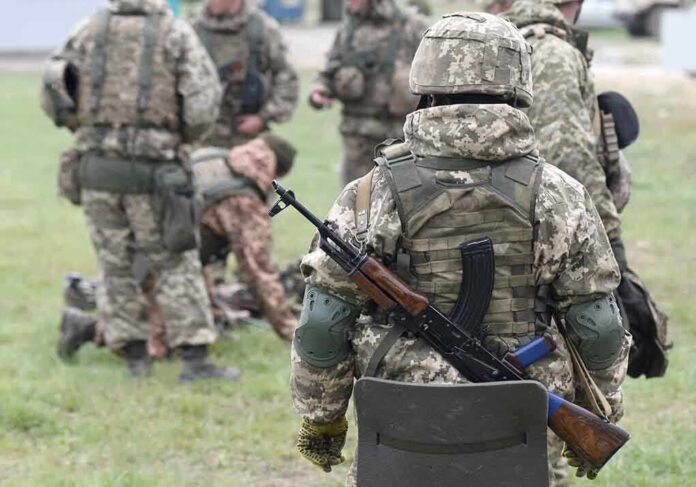Mexico’s national security crumbles as 11 National Guard members were caught red-handed protecting a cartel fuel theft operation in Guanajuato, revealing the deep corruption that threatens both Mexico’s sovereignty and America’s border security.
Key Takeaways
- Mexican authorities arrested 11 National Guard members caught actively guarding a cartel fuel theft operation in Guanajuato, using official military vehicles and Army-issued weapons
- A federal officer in plainclothes was identified as the driver of the tanker truck being filled with stolen fuel from a Pemex pipeline
- Fuel theft (huachicoleo) costs Mexico’s state-owned Pemex approximately $900,000 daily, while fuel smuggling and tax evasion drain roughly $24 million per day from the Mexican treasury
- The U.S. Department of the Treasury has identified fuel theft as a significant revenue source for Mexican drug cartels, with stolen fuel sometimes smuggled into the United States
- The corruption extends beyond the arrested guardsmen, as an unspecified number of troops managed to escape the scene during the police operation
Government Forces Caught Protecting Cartel Operations
A shocking breach of public trust unfolded in central Mexico as authorities arrested 11 National Guard members actively protecting a cartel fuel theft operation in Guanajuato state. The arrests came after local police responded to an anonymous tip about illegal fuel tapping in Apaseo el Alto. When police arrived at the scene, they discovered National Guard members filling a tanker truck with stolen fuel directly from a tapped Pemex pipeline. The guardsmen were using three official military vehicles and were armed with Army-issued weapons, demonstrating the brazen nature of their criminal activities.
Initially, the National Guardsmen attempted to claim they were guarding a legitimate fuel transport operation, but this cover story quickly collapsed under scrutiny. When questioned by police, one guardsman even attempted to flee in the tanker truck, further confirming their illicit activities. The driver of the tractor-trailer was later identified as a federal officer in plainclothes, highlighting how deeply criminal organizations have penetrated Mexico’s security forces. The operation ultimately led to the capture of three officers and eight enlisted men, some dressed in civilian clothes.
Widespread Corruption and Economic Impact
The incident in Guanajuato is far from isolated, as the region has experienced numerous cases of criminal organizations tapping into underground fuel lines. Fuel theft, known locally as “huachicoleo,” has become a major revenue stream for Mexican cartels and represents a significant drain on the country’s economy. According to recent data, these illegal operations cost Pemex, Mexico’s state-owned petroleum company, approximately $900,000 daily. The broader impact of fuel smuggling and related tax evasion is even more staggering, draining the Mexican treasury of roughly $24 million per day last year.
The Defense Ministry has confirmed the involvement of National Guard members in this case and verified that the weapons and vehicles used were indeed official Army equipment. This confirmation underscores the systemic nature of corruption within Mexico’s security forces. More troubling still, reports indicate that an unspecified number of troops managed to escape during the police operation, suggesting the network of corrupt officials may be larger than what this single arrest operation revealed. All captured suspects, along with their weapons, were transferred to the Federal Attorney General’s Office.
Cross-Border Security Implications
The cartel fuel theft operations in Mexico have significant implications for U.S. national security and economic interests. The U.S. Department of the Treasury has identified fuel theft as a crucial revenue source for major drug cartels, including the notoriously violent Cartel Jalisco New Generation. Intelligence reports indicate that stolen fuel is sometimes smuggled across the border into the United States for illegal sale, creating a direct pipeline of cartel funding that originates in Mexico but impacts American communities and businesses.
Transnational companies have been implicated in this criminal ecosystem as well, with some accused of avoiding taxes by misreporting contraband fuel as non-taxable items. This sophisticated level of financial crime demonstrates how cartels have evolved beyond traditional drug trafficking to diversify their revenue streams. The case of the National Guard members in Guanajuato serves as a stark reminder that President Trump’s focus on border security addresses not just immigration concerns but also the complex threat of transnational criminal organizations that have corrupted Mexican institutions and now threaten American sovereignty.











